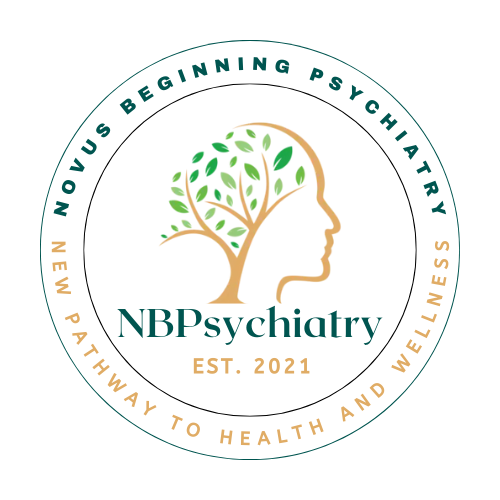Types of Mental Health Stigma
Mental health has always been stigmatized and considered a taboo topic. Individuals suffering from mental health issues have always been looked down upon by other people and society at large. Such widespread prejudice towards those with mental health problems has always left many feeling isolated and embarrassed. This lack of empathy has created a mental health stigma that has become deeply ingrained in our society over time.
This stigma has a long and troubling history, dating back centuries when people with mental health issues were labeled as insane and dangerous instead of receiving proper treatment. Sadly, this negative attitude towards mental health sufferers has only worsened in recent times, with technology fueling the belief that they are somehow abnormal or strange.
According to the American Psychiatric Association, there are three types of stigma: public stigma, self-stigma, and institutional stigma. It’s important to understand these types of stigma so we can work towards eliminating them and creating a more accepting and inclusive society.
It’s heartbreaking to live in a world where people are judged and discriminated against because of their mental health. Unfortunately, this is the reality for many who face public stigma. Society’s negative views can paint an inaccurate and hurtful picture of those who need support. It is called Public stigma, which is when other people hold negative or discriminatory attitudes toward mental illness.
Sometimes, the hardest battle to fight is the one within ourselves. We can become trapped in our own negative thoughts and begin to doubt our own worth. This is known as self-stigma and can be just as damaging as an external stigma. In other words, Self-stigma is when individuals with mental illness hold negative attitudes, including internalized shame, about their own condition.
The fight against discrimination becomes even harder when the very systems that should provide comfort and support end up perpetuating it. One obvious example of this bias is the stark contrast in insurance coverage. Institutional stigma refers to the policies of both government and private organizations that limit opportunities for people with mental illness, whether intentionally or unintentionally.
Myths and Misconceptions About Mental Health
Mental Illness is a Result of Weakness: Many people wrongly believe that mental illness is a sign of weakness. However, this couldn’t be further from the truth. Mental disorders can arise from various factors, including genetics, biology, and environmental factors. It’s essential to acknowledge that nobody chooses to have a mental disorder, just as nobody chooses to have cancer or diabetes.
People with Mental Illness are Dangerous: It’s time to debunk a persistent myth that has been floating around for years. Contrary to what some people may believe, people with mental disorders are actually more likely to be the victims of violent crimes than to be the ones committing them. This damaging stereotype not only makes it harder for those with mental illness to get the help they need, but it also unfairly stigmatizes them.
Mental Health Issues are Rare: False. Mental health issues are more common than you might think. In fact, according to the World Health Organization (WHO), one in four people around the world will experience some form of mental disorder at some point in their lives. Knowing this, it is important to break down the barriers that prevent people from seeking help,
You can just Snap Out of It: This is possibly one of the most dangerous misconceptions surrounding mental illness. Unlike a bad mood that passes, mental health issues are real and require professional help and support. It’s insensitive to tell someone struggling with mental illness to “just snap out of it” or “get over it.” This dismisses the reality of their situation.
Mental Health Issues are not Real: This one is pure ignorance. Mental health issues are real and can be just as crucial as physical health issues. It’s high time we start treating mental health with the same level of seriousness as physical health.
Effects of Mental Health Stigma
Stigma and discrimination surrounding mental health have far-reaching and deeply damaging effects on individuals. They damage self-esteem and a person’s sense of identity, which often leads to social isolation and a lack of supportive relationships. These negative attitudes create significant barriers to accessing healthcare and support services, making it more difficult for people to receive the help they need. Stigma causes misconceptions about mental health, challenging societal progress, and misunderstanding among family, friends, and society. As a result, people may become hesitant to seek help or may discontinue treatment, further exacerbating their struggles. In some cases, stigma can escalate to bullying, physical violence, or harassment, and may even contribute to worsening psychiatric symptoms. Ultimately, the impact of stigma and discrimination not only harms individuals but also affects collective efforts to improve mental health outcomes.
Dealing with Mental Health Stigma
- Promote education and awareness to challenge misconceptions with facts and enhance understanding of mental health problems.
- Encourage open conversations and discussions about mental health to create a safe and supportive environment for people to share their experiences.
- Foster empathy and compassion by sharing personal stories that humanize the experience of living with mental illness.
- Advocate for equal access to mental healthcare services and encourage equality between physical and psychological illness
- Establish anti-stigma programs in schools, workplaces, and communities to extend acceptance and reduce discrimination.
- Encourage media representation that accurately and sensitively portrays mental health issues while avoiding stigmatizing images.
- Support laws and policies that protect the rights and well-being of individuals with mental illness
- Encourage the formation of peer support networks that provide a feeling of belonging for those struggling with mental health challenges.
- Promote self-care and mental wellness habits to empower individuals to prioritize their mental health and seek help when needed.



